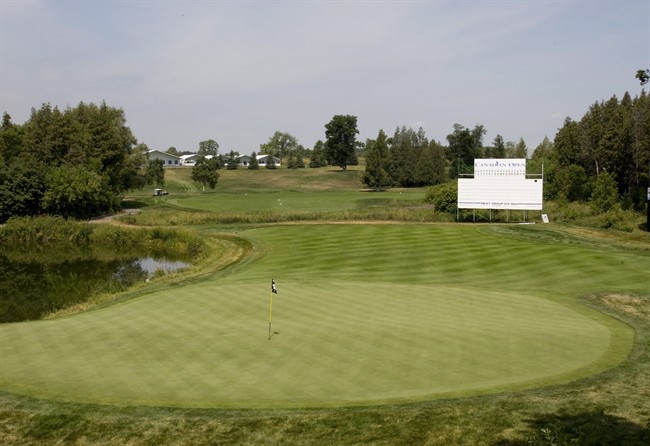TORONTO – The City of Toronto is considering a review of its municipal golf courses as it struggles with rising maintenance costs and declining interest in the sport.

In a recent report, the city’s Parks, Forestry and Recreation proposed hiring an external consultant to examine industry trends and come up with recommendations that will allow the city “to determine the best model for golf service delivery” for the next 20 years.
The proposed review would be completed by early 2019, the report said.
Toronto owns seven golf courses, two of which it leases out to private operators. The city manages the other five courses, but contracts out minor operations like ticket sales, cart rentals, pro shops and food sales.
The city-managed golf courses typically bring in $4.5 million to $5 million per year – not enough to recoup the costs of running them, the report said.
“Including overhead expenses, the golf operations incur a net loss on an annual basis,” the report notes.
The losses are likely to continue in the years to come.
Toronto’s 2018-2026 capital plan has identified $9.7 million in improvements needed for municipal golf courses, including upgrades to building roofs and windows, sanitary fixtures, pavement, mechanical and electrical systems and irrigation.
- Roadblock cleared: Ontario’s Highway 413 moving forward after governments reach agreement
- TSX down 160 points as energy stocks move lower, U.S. markets continue to fall
- Man accused of stabbing Toronto police officer faces attempted murder charges
- Ford government questions usefulness of fourplex policies citing low uptake
Municipal courses have stiff competition for the attention of local golfers.
There are over 100 courses open to members of the public in the Greater Toronto Area, plus several private clubs, the Parks reports said, and the city’s courses have experienced a marked decline in use.
The number of rounds played at municipal golf courses decreased by about 15 per cent between 2007 and 2016, from 187,000 to 157,965.
“It is anticipated that without significant investment in city-run golf courses, this downward trend in rounds is expected to continue,” the Parks reports says.
The proposal to conduct a review will be considered by a city’s government management committee on Jan. 11, and then go to city council on Jan. 31.
“The point of the report going to committee is to get the extension for the contracts and to let council know that we will be undertaking the review,” city spokeswoman Jane Arbour said, adding that no decisions will be made until the review is over.
The report noted that many Canadian municipalities have been exploring “alternate service delivery and alternate use options for their golf operations” over the past decade.
READ MORE: Oakville, Ont., council votes to give heritage protection for Glen Abbey golf course
Vancouver is currently reviewing its entire 25-year plan for public parks, including its municipal golf courses. In 2014, the City of Thunder Bay sold one of its courses to a contractor for $650,000.
University of Toronto political science professor Margaret Kohn, who specializes in issues of urbanism and public space, said Toronto city staff should ask themselves two questions when considering the future of this public land: Does the land serve citizens who are unlikely to have easy access to public recreation space? And can the space be used for multiple purposes?
“Open spaces or recreational spaces are best when they can be used by different users in different ways. I think of parks in my neighbourhood where you have a baseball diamond but then when baseball players aren’t there, it’s an off-leash area for dogs, or people are playing Frisbee,” she said. “Golf courses, as I understand it, are not open to alternative uses.”
Golf is also a sport typically reserved for people with the money to pay greens fees, which can cost up to $69 for 18 holes.
“It’s not like golf is enjoyed only by a tiny elite of the population, like polo or something, but it is pretty costly to be able to use even public golf courses,” Kohn said.
“Essentially the taxpayers are subsidizing something that generally people who are more affluent tend to use and that’s not really consistent with my vision of public space,” she added.



Comments